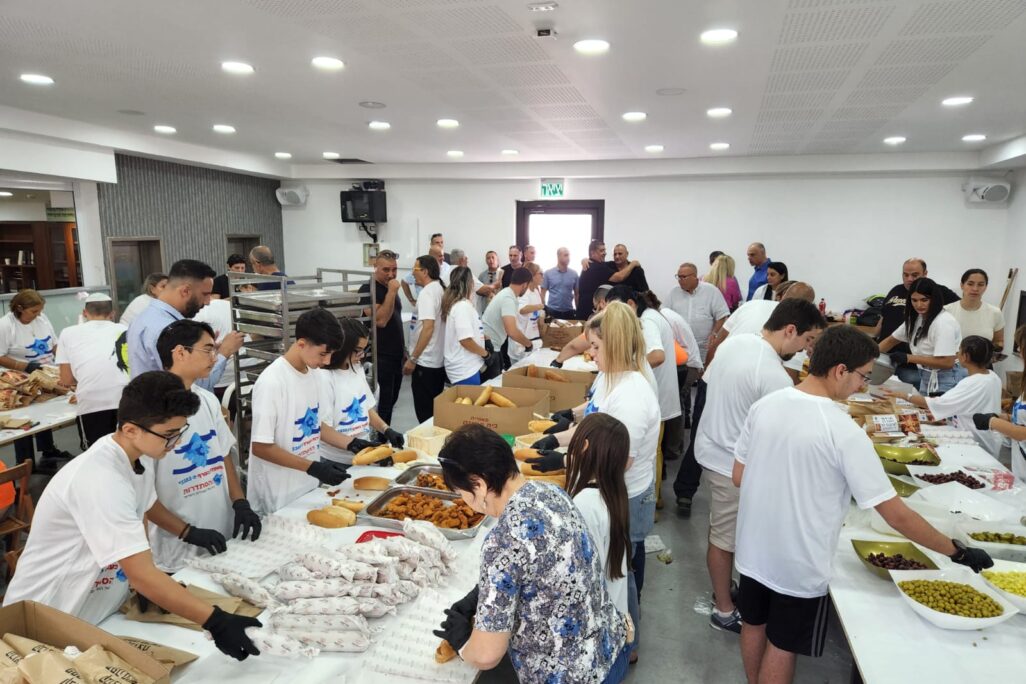
Since the outbreak of the war on October 7th, the Histadrut’s local branches have transformed into civil action hubs working for the benefit of the home front and security forces. Local Histadrut leaders and workers, who in normal times are occupied with workplace responsibilities and advising worker unions, have dropped everything in order to lead various initiatives to meet a wide variety of societal needs.
"In the Histadrut there are 29 regional centers, and they are working non-stop," said Avi Yechezkel, Head of the Regional Affairs Division at the Histadrut.
The Jerusalem branch, led by regional director Danny Bonfil, has overseen the widespread collection and distribution of fruit and vegetables to displaced communities from the Gaza Envelope. Wholesale market traders in Givat Shaul donated significant quantities of crates of fresh produce, which were distributed by workers at the Sha'arei Tzedek Medical Center and the International Leadership Institute of the Histadrut at Beit Berl College, where displaced families are staying, among other locations.
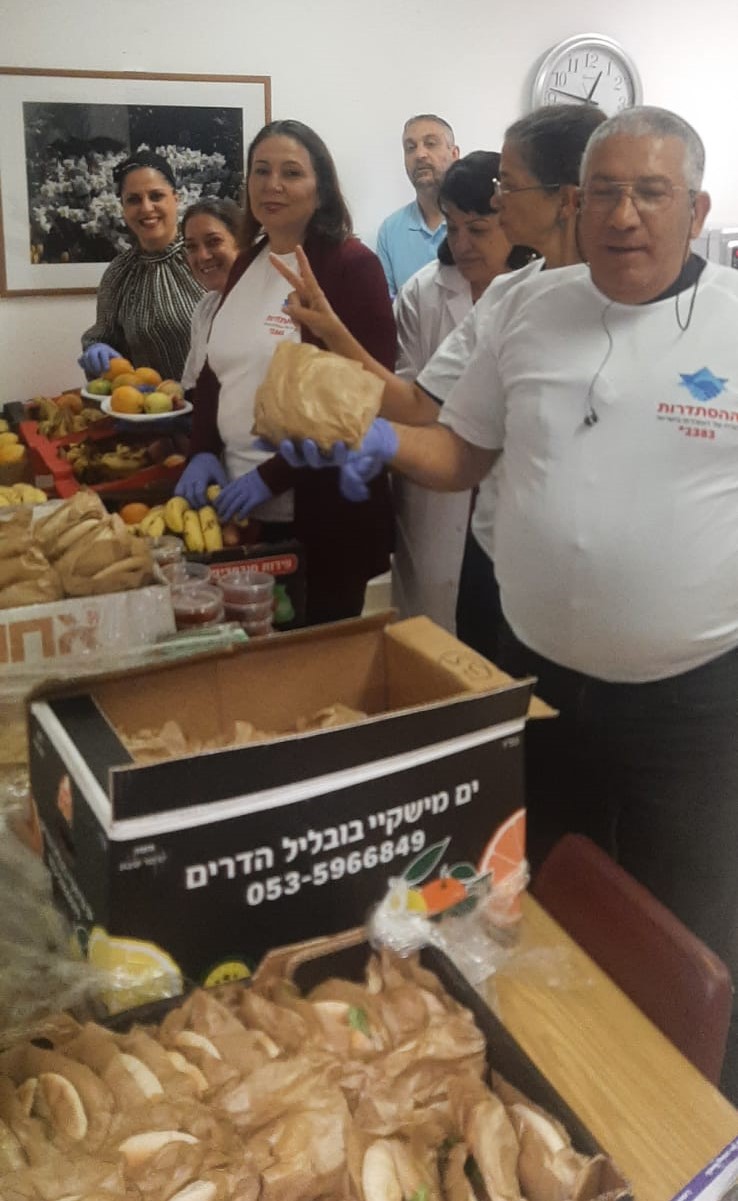
In the Rishon LeZion branch, Histadrut workers visited the local fire and rescue station and handed out pizza to the firefighters. Additionally, they visited elderly retirees in the area to inquire after their well-being, and delivered care packages to soldiers in the South. In the Emek region, under the leadership of Kinneret Nahman Shalev, workers distributed sandwiches to Magav (Border Police) soldiers in the area.
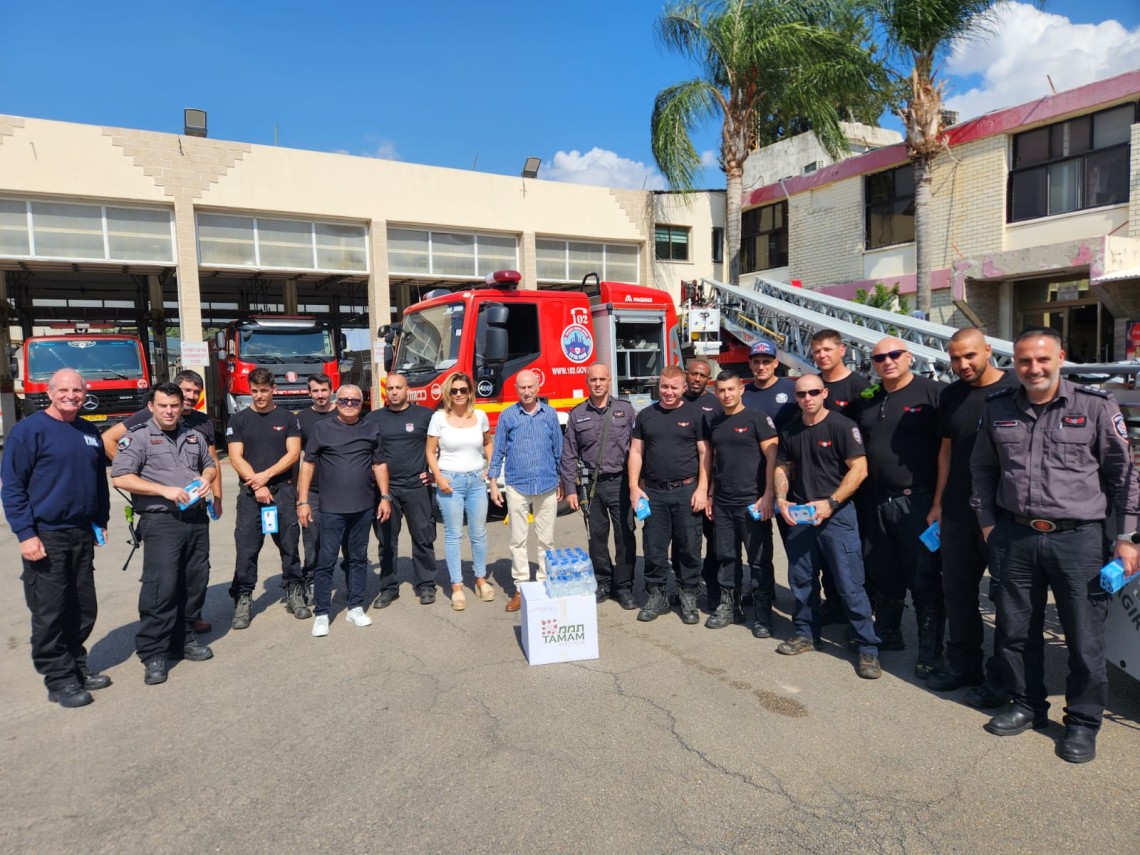
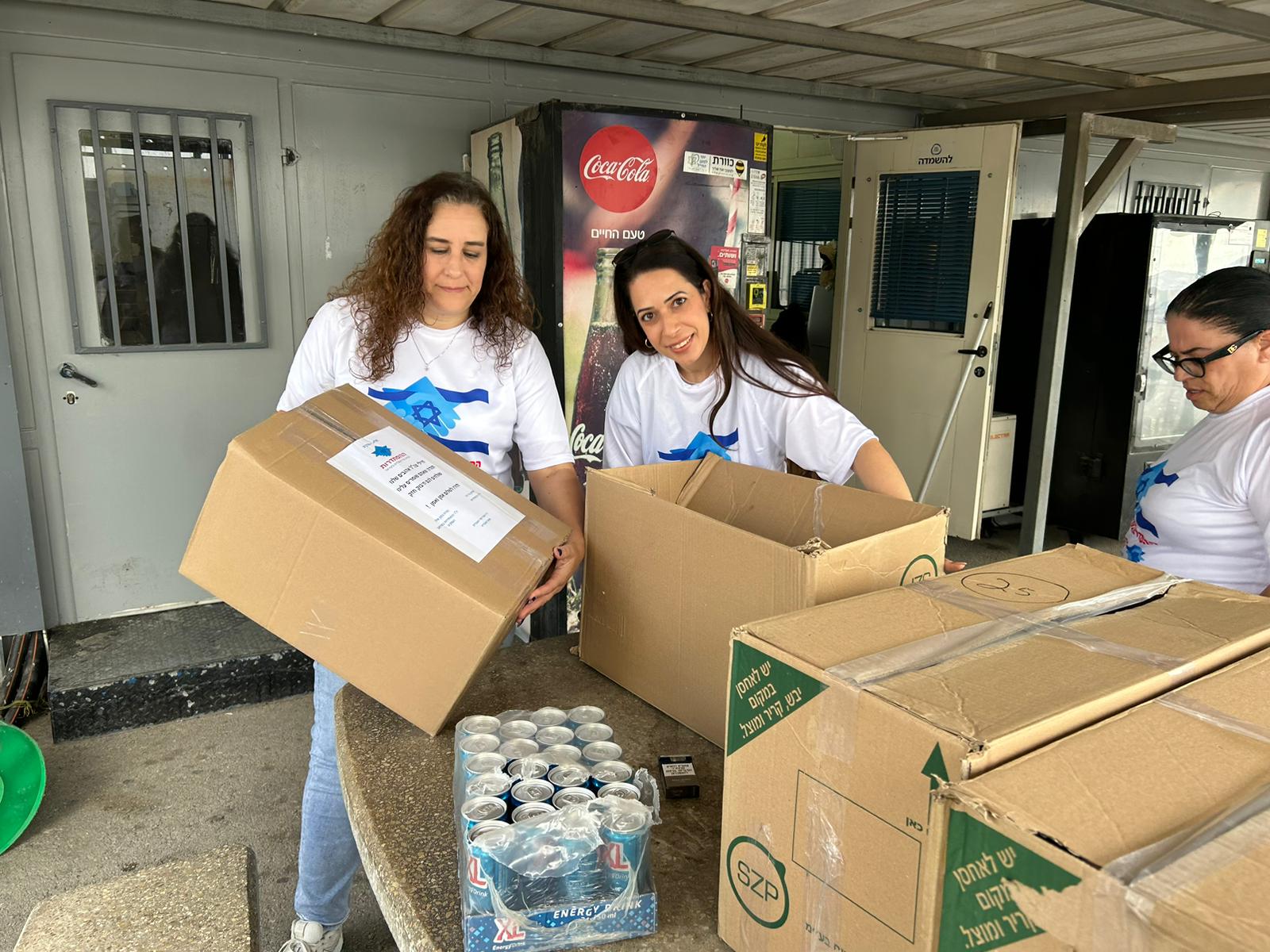
Workers from the Tel Aviv-Jaffa branch, under the leadership of Orna Avidan, distributed shwarma to volunteer soldiers at the center of the Association for Israel’s Soldiers. Additionally, they provided art kits to children from displaced families residing in hotels in Tel Aviv. They visited the childcare program of Meuhedet Health Services for children of hospital workers, and gifted the children with toys. Workers from the Petah Tikva branch, led by Giora Nahum, visited injured workers in the war in the hospital.
Members of the Ashdod branch brought breakfast to the Magen David Adom (MDA) and rescue stations in the city, and sent thermal equipment to several brigades in the north and to the navy. The regional center oversaw the distribution of about a thousand sandwiches to the rescue workers and soldiers in the city, and sent care packages to the soldiers stationed on the border line in the Gaza Strip. In the Ashkelon region, they distributed gifts to the employees of the Barzilai Medical Center in the city.
Employees of the Karmiel branch visited police officers, volunteers and reservists stationed at checkpoints around the city, and gave them lunch. They also brought lunch to rescue workers at the MDA station.
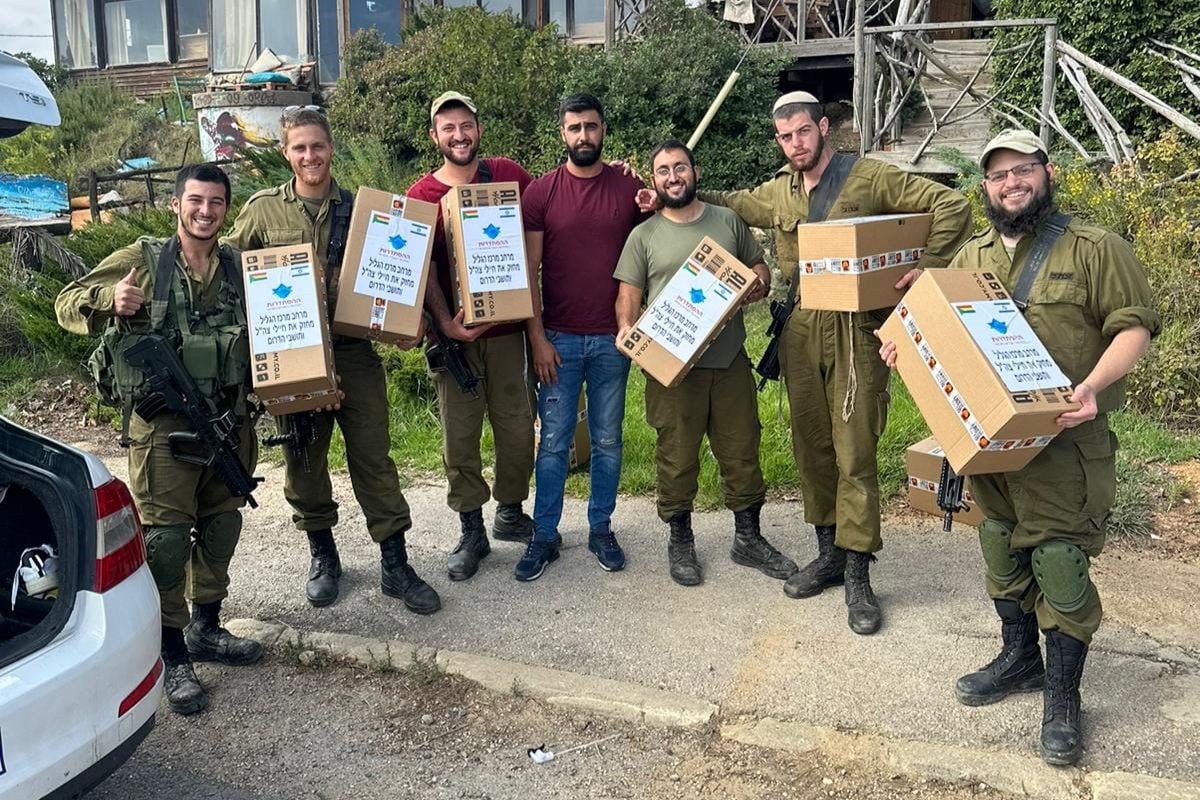
The head of the Shfela region, Moshe Arbeli, his deputy Danny Ohayon, and the workers from the regional office visited the Ayalon fire and rescue station and the local MDA station, where they provided meals to the workers. Additionally, they distributed care packages to IDF soldiers.
Another initiative is the establishment of a packing and distribution center for packages to soldiers in Be'er Sheva, which provides sandwiches, hot food and care packages.
"We reach the soldiers behind enemy lines," Yechezkel said. "We visited retirees in their homes and gave them gifts. Workers’ unions are collecting and donating food. I'm proud of our branches; we are the face of the Histadrut."
"There's order, there's leadership, there’s no panic. We’ve come to work"
In contrast to the difficulty of state institutions in addressing pressing issues, Yechezkel presented the Histadrut as a model to learn from.
"The State of Israel needs a restart," he said. "If the country's leaders acted like Histadrut Chairman Arnon Bar-David in recent years, then the State of Israel would be united. Leadership has been lacking, and the Histadrut is the only body that has worked against the disintegration of Israeli society.”
“We have leadership that builds and unites,” he continued. “Histadrut members come from all segments of society, Jews, Arabs, Druze, women, men. Even the Arab regions do what they can according to the circumstances."
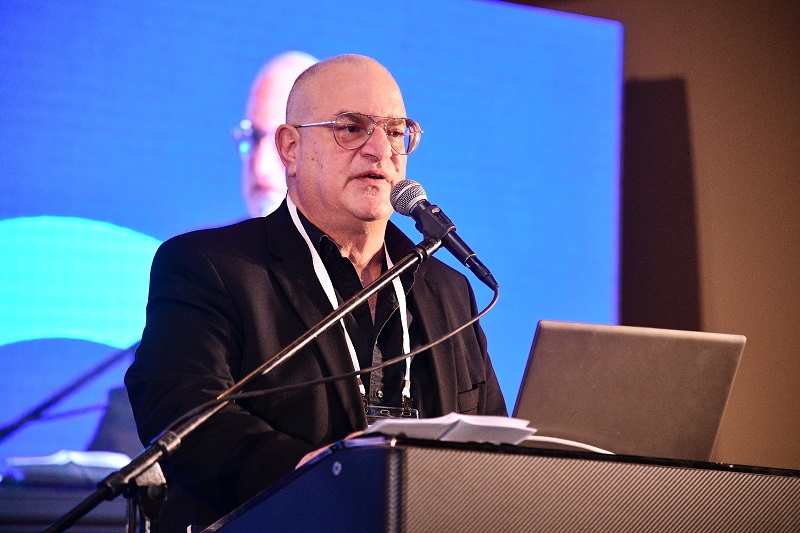
According to him, the presence and participation of local workers is very high.
"People come voluntarily; even mothers with children have come to work. The fact that most of our people are volunteering in these difficult days shows how successful it is,” Yechezkel emphasized. “We have a system that has taken responsibility for the country, for employment. There's order, there's discipline, there's leadership, there's composure, there’s no panic. We’ve come to work."
This article was translated from Hebrew by Matt Levy.






